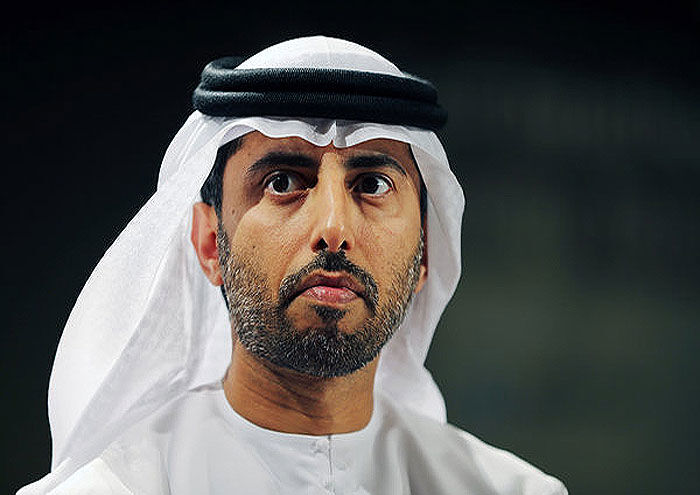Suhail al-Mazrouei said he was concerned about future oil supply shortages due to low investment, the UAE’s The National quoted Reuters as reporting.
“I’m not that worried about the very short term, I think we can manage balancing the supply with demand,” he told reporters on Tuesday, on the sidelines of the World Utilities Congress in Abu Dhabi.
“I’m more worried about the level of investment required for years to come.”
In a surprise move last month, OPEC+ members – including Saudi Arabia, the UAE, Iraq, Kuwait, Oman and Algeria – announced voluntary oil production cuts amounting to 1.16 million barrels per day from May until the end of the year as a precautionary measure to support oil market stability.
Saudi Arabia, the world’s biggest oil exporter and OPEC's largest producer, plans to cut its output by 500,000 bpd from May until the end of the year, according to the kingdom's Ministry of Energy.
The UAE will cut its output by 144,000 bpd during the same period, Mazrouei said at the time.
Brent, the benchmark for two-thirds of the world’s oil, crossed $85 a barrel last month after the announcement.
It has since erased most of those gains as recession concerns continue to weigh on the outlook for fuel demand.
Brent was down 0.78 per cent at $76.41 a barrel at 1.37pm UAE time on Tuesday while West Texas Intermediate, the gauge that tracks US crude, was trading 0.78 per cent lower at $72.59 a barrel.
OPEC+ said it would continue to review market dynamics and plans to meet again on June 4 in Vienna to decide on its next course of action.
April’s announcement followed a historic cut in October last year, when the OPEC+ group slashed its crude output by two million bpd, its biggest production cut since the start of the COVID-19 pandemic in 2020.
The decision was made in “light of the uncertainty that surrounds the global economic and oil market outlooks, and the need to enhance the long-term guidance for the oil market, and in line with the successful approach of being proactive and pre-emptive”, OPEC+ said at the time.
Last week, Swiss lender UBS said it was retaining a positive outlook on the oil market and expected it to tighten on the group's cuts and rising demand over the coming months.
“Generally, we see oil demand holding up and look for even higher demand over the coming months,” UBS strategist Giovanni Staunovo said in a research note.
“The lower potential OPEC+ crude production and exports should help the oil market tighten, supporting our view that oil inventories will begin to decline and support prices.”


Your Comment